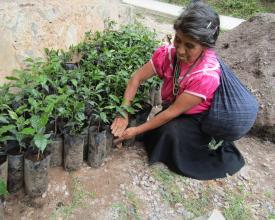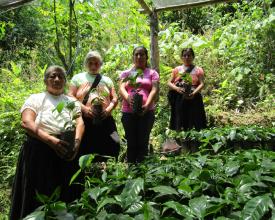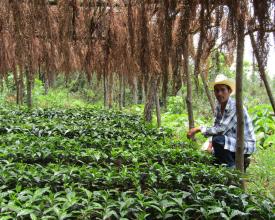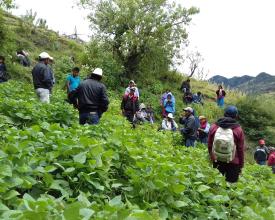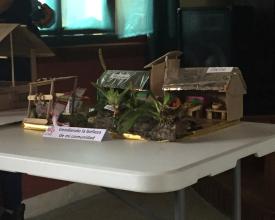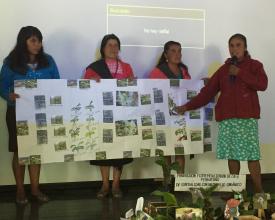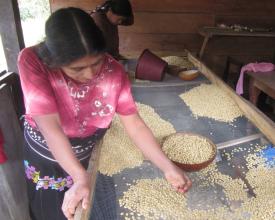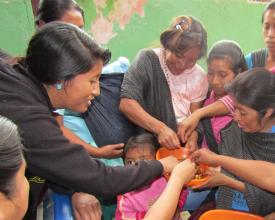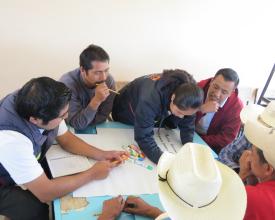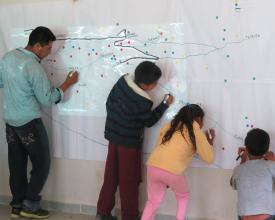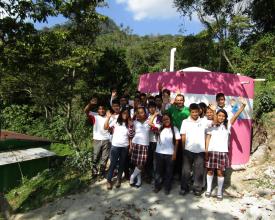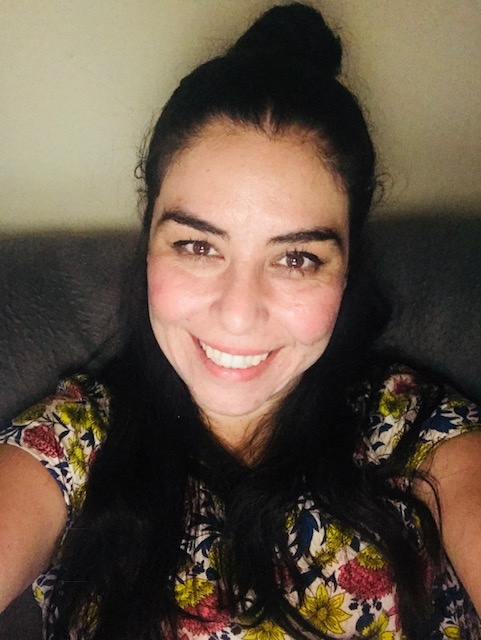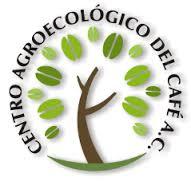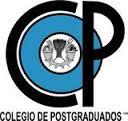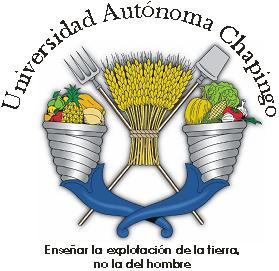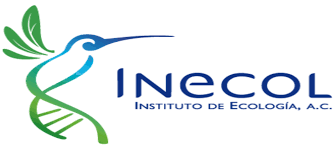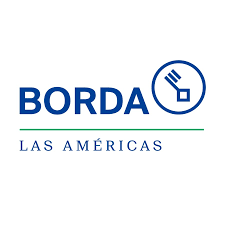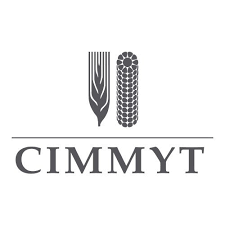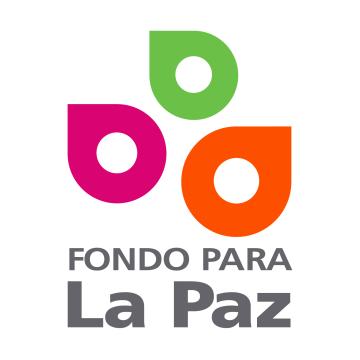
Farming to empower people and conserve ecosystem services
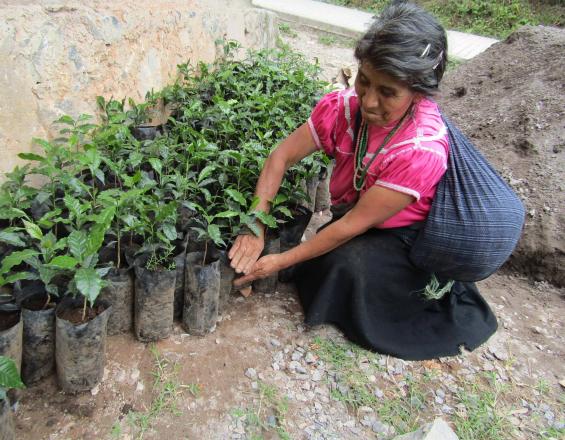
Fondo para la Paz (FPP) works with indigenous rural communities' in 5 States of Mexico. One line is farming as part of development process with the goal to empower community organization and strengthen them through activities that could conserve environmental services (ES) and biodiversity, and promoting development skills and abilities at the community. With the FPP facilitation communities are working with coffee (Veracruz) and maize (Oaxaca) inside agroecological schemes. These projects help them increasing profits and switch old paradigms about conservation and farming. We work with people, sensitize them about being responsible and main actors about their development, their environment and their actions for a long time: farming is just the way, development is the ultimate goal. We work with each community up to 10 - 15 years, seeking development and people with the vision to achieve mature communities, self-administrated and with social cohesion.
Context
Challenges addressed
- Farming with an ecological vision, which permits produce and conserve environmental services as soil, biodiversity, water and landscape.
- Cultural management that permits reverse deforestation and foment reforestation areas with local trees and make barriers to conserve soil, nutrients and water.
- Farming focuses in high quality and yields, and also permits families to have secondary products as wild plants and mushrooms for food, timber, honey, etc.
- Increasing social cohesion promoting organization, trust links, good communication and nets to achieve communitarian goals.
- Facilitating the process of development in each community we work, forming a regional and sustainable vision which permits every family to have an opportunity in their community.
- Involving children, youth and adults within the community to make them responsible of their development.
- High yields and accurate market channels, which bring families above the poverty line and dream a future for their children.
Location
Process
Summary of the process
The three blocks proposed aim at reaching cohesive, self-managed communities with a vision of development, over a period of 10 to 15 years by FPP works.
To see communities as an integrated system from the environment and their ecosystem services allows community organization, knowledge sharing and well-being as the lines within which we will achieve a single community. Besides this, we have to promote the grounds on which the community will be able to generate the economic resources that allow them to face challenges, generate a better quality of life, social cohesion and an opportunity for the new generations.
Having a production system based on social requirements and thought since the perspective that preserves the ecosystem and social services could strengthen the social integration and generating profitable economic activities that allow incorporating traditional knowledge and practices that are part of the local culture. And the training for people not only for best production, but for financial education, business, entrepreneurship are key to improve their family and communitarian goals.
This could be the base for community development.
Building Blocks
Sharing knowledge
Identifying and value local knowledge and generating an exchange of it, as well as the transfer of technology appropriate with environment and community needs, which allow people strengthen its skills and abilities in order to carry out local and regional development projects.
This block is based on the recognition of local capacities, abilities, livelihoods and resources, as well as social and cultural resources specific to the community and its environment. As well as through the identification of strengths and weaknesses, it becomes possible to have the necessary information to identify and prioritize common problems.
We have a central catalyst for FPP betting: generate an exchange of knowledge and technology transfer for the environment and the problems detected, which allows the improvement of local production systems and facilitate the development and implementation of community projects. This catalyst make the bases to design projects of wellbeing, conservation agriculture, among others; that this exchange of knowledge and technologies is carried out and can be replicated and implemented in other community projects.
Enabling factors
- Local promoters which lead the process of community participation in the project.
- Participation of families in participatory planning to identify needs and solutions for them community and commitment to work on it.
- Farmers identifying environmental services offered by their lands.
- Farmers taking trainings to improves the cultural management of their land, applying knowledge and working seeking to conserve environmental services
- Networks with different stakeholders to improve farming and market the products.
Lesson learned
- We need to prioritize the ecosystem as the main base of development, in which one is inserted the social organization that strengthen the sustainable use of the environmental services that offer the region and that have a profitable economic activity as consequence.
- Participants of the projects having the main role in the process, we have to impulse them to participate seeking the way to give them confidence and security to participate, asking and sharing about the topics they want to know.
- Farmers have local knowledge as important as trainers and other stakeholders; they could strengthen their skills to identify the best practices for them.
- We have to give them the responsibility of their community, developing skills that permit farmers change the paradigm about farming as pick up harvest, to farming as way of life to drive development.
Resources
Community organization
FPP intervention scheme considers the Community Organization as a fundamental catalyst because through it an active, conscious, inclusive and participative community is created that is committed to solving its problems. FPP focuses on the integration of networks and working groups, linked to the community and participants participation in their locality, in such a way that a dynamic community is achieved that learns to make joint decisions.
We seek to work with self-managed community actors that promote collective interests and raise awareness of the importance of social integration for the resolution of common problems. This allows the appropriation of projects that integrate environmental services conservation and based on social organization.
We are working for the consolidation of the community organization with a solid structure, well-defined roles and full participation of women and young people; which have high levels of trust and solidarity as well as promoters of change.
Of that it is possible a resilient community with the capacity of answer to problems or external shocks that, likewise, remain in the search of continuous improvements.
Enabling factors
- Identifying cultural knowledge, values and idiosyncrasy of participants to enhance the impact of the project to achieve common goals.
- Identifying geographical area, landscape and ecosystem services offered by the region to understand people life and dynamic.
- Work team from the region whom speak language and share idiosyncrasy to achieve people confidence and participation.
- Participatory planning to identify their own community, their needs according their environment, social perspective and economic opportunities.
- Effective communication.
Lesson learned
- People need feel part of the project and to achieve that we have to integrate as much as possible the entire community, even if they are not farmers, but receive benefits of ecosystem and social services offered by farmlands.
- We need to identify the base line considering environmental and social perception of the entire community, even if they are not active farmers.
- We need to develop a plan beyond only farming or wellbeing, in which include leadership, entrepreneurship, financial education and business.
- We need to include young people in order to reach a generational joint.
Resources
Wellbeing
FPP considers fundamental for the implementation of projects: achieving the basic needs and the improvement of the living conditions of the community, it has the endorsement of it. So it is essential to build bonds of trust with its participants, local authorities and community leaders.
The satisfaction of basic is necessary to improve life conditions of families and communities; which creates accurate conditions to self-sufficiency as well the design of local projects that contribute to their development beyond wellbeing.
Having these situations will generate projects oriented to the generation of income with local resources that will establish the bases to achieve self-sufficiency and their empowerment. Also, from this process the community will carry out actions for the management of high impact projects with and other instances. After having finalized the knowledge and skills for the design, execution and monitoring of local and regional development plans.
Enabling factors
- Participants with a communitarian vision on long term which permits identify the goals to achieve development.
- Commitment from participants with the project, the process and the work.
- Trainings and farming models design according with the region to achieve best yields.
- Know the ES that each region offers in order to insert it in a value chain which permits better incomes for farmers.
- People could receive benefits to reach wellbeing, but they have to participate actively and share the compromise to work inside this scheme.
Lesson learned
- We have to identify the options to insert the products in the best market, and that market has to have the same values as farmers.
- We have to determine with community how far we can go in a period of time with the project, to identify the goals, indicators and impacts of the project.
- We have to identify secondary products and identify the diversification of the work for non-farmers families.
- We must include young people and children in the process of identify goals for the community.
Resources
Impacts
Fondo para la Paz (FPP) works with indigenous rural communities' in 5 States from Mexico. One line is farming as part of development process with the goal to empower community organization and strengthen them through activities that could conserve environmental services (ES) and biodiversity, and promoting development skills and abilities at the community. With the FPP facilitation the communities are working with coffee (Veracruz) and maize (Oaxaca) inside agroecological schemes. These projects help them to increase profits and switch old paradigms about conservation and farming. We work with people, sensitize them about being responsible and main actors about their development, their environment and their actions for long time: farming is just the way, development is the ultimate goal. We work with each community to 10 - 15 years, seeking development and people with the vision to achieve mature communities, self-administrated and with social cohesion.
Beneficiaries
Indigenous people from three regions of Mexico: Tenek-families from Huasteca Potosina which work with Vanilla; Mixteca-families from Oaxaca, which reforest Mixteca; and and Nahuatl-families from Sierra Zongolica Veracruzana which work with coffee.
Sustainable Development Goals
Story
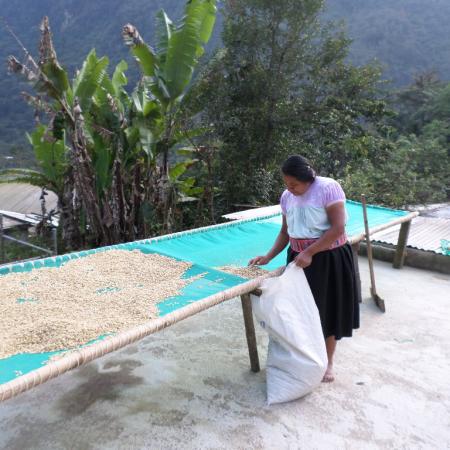
Indigenous communities in Mexico are the forest guardians, they take care of the beauty, biodiversity and environmental services, which is offered by natural areas. The Mixtecas, Tzotziles, Tseltales and Nahuas farmers in Mexico are taking care of their natural areas since their vision and love for the land, keeping the environment and doing agricultural activities in order to achieve economic security and conserve their lands and culture.
Mixtecas in Oaxaca work on food security with maize crops in milpas, milpas are traditional agricultural schemes that includes maize as the main crop, but also beans, chilli-peppers, food plants, mushrooms and other products (according to the region); and also, are incorporating trees in the structure; this scheme permits them to improve the nutrition for families and reintegrate traditions from their community. Nowadays people have more variety of food and also are conserving their land. Another work in Mixteca is reforesting degradation land and soil practices to conserve water and soil resources, with 30 ha reforested.
Nahuas in Sierra Zongolica, Veracruz, and Tzotziles and Tseltales in Chiapas; work with coffee farms producing high-quality coffee and keeping their lands with an agricultural scheme looking for conserve land and water, and also other environmental services offered by farms as food, timber, biodiversity, and others. Now, farmers are producing speciality parchment coffee and fortifying their communities, this coffee is promoting the empowerment of participants, gender equality and generational joint with a vision of development and the future for them. Today 18 communities from Sierra Zongolica work like nurseries to produce their plant until parchment coffee, now we are working with them to improve other abilities in order to identify the best links inside the coffee value chain.
The Tzotziles, Tseltales, Mixtecas and Nahuas people have been demonstrated that based on their knowledge and including their culture, environment and participation, they can achieve better results and a real social impact for their communities based on the respect for land and people. Nowadays people have a dream for their communities and they identify options for their people.

